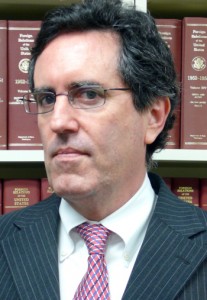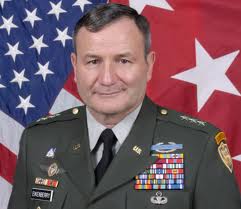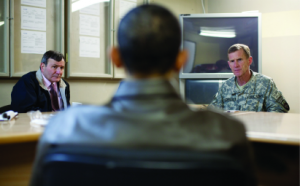
INTELLIGENCE AGENCY BUDGETS REVEALED IN WASHINGTON POST
Secret intelligence agency budget information was abundantly detailed in the Washington Post yesterday based on Top Secret budget documents released by Edward Snowden. See “U.S. spy network's successes, failures and objectives detailed in ‘black budget' summary” by Barton Gellman and Greg Miller, Washington Post, August 29.
The newly disclosed information includes individual agency budgets along with program area line items, as well as details regarding the size and structure of the intelligence workforce. So one learns, for example, that the proposed budget for covert action in FY2013 was approximately $2.6 billion, while the total for open source intelligence was $387 million.
Some of the information only confirms what was already understood to be true. The budget for the National Security Agency was estimated to be about $10 billion, according to a recent story in CNN Money (“What the NSA Costs Taxpayers” by Jeanne Sahadi, June 7, 2013). The actual NSA budget figure, the Post reported, is $10.8 billion.
And the involuntary disclosure of classified intelligence budget information, while rare, is not unprecedented. In 1994, the House Appropriations Committee inadvertently published budget data for national and military intelligence, the size of the CIA budget, and other details. (“$28 Billion Spying Budget is Made Public by Mistake” by Tim Weiner, New York Times, November 5, 1994)
But the current disclosure of intelligence budget information dwarfs all previous releases and provides unmatched depth and detail of spending over a course of several years, based on original documents. The disclosure is doubly remarkable because the Post chastely refrained from releasing about 90% of the Congressional Budget Justification Book that it obtained. “Sensitive details are so pervasive in the documents that The Post is publishing only summary tables and charts online,” Post reporters Gellman and Miller wrote.
This is not a whistleblower disclosure; it does not reveal any illegality or obvious wrongdoing. On the contrary, the underlying budget document is a formal request to Congress to authorize and appropriate funding for intelligence.
But the disclosure seems likely to be welcomed in many quarters (while scorned in others) both because of a generalized loss of confidence in the integrity of the classification system, and because of a more specific belief that the U.S. intelligence bureaucracy today requires increased public accountability.
Though it has never been embraced as official policy, the notion of public disclosure of individual intelligence agency budgets (above and beyond the release of aggregate totals) has an honorable pedigree.
In 1976, the U.S. Senate Church Committee advocated publication of the total intelligence budget and recommended that “any successor committees study the effects of publishing more detailed information on the budgets of the intelligence agencies.”
In a 1996 hearing of the Senate Intelligence Committee, then-Chair Sen. Arlen Specter badgered DCI John Deutch about the need for intelligence budget secrecy.
“I think that you and the Intelligence Community and this committee have got to do a much better job in coming to grips with the hard reasons for this [budget secrecy], if they exist. And if they exist, I'm prepared to help you defend them. But I don't see that they exist. I don't think that they have been articulated or explained,” the late Sen. Specter said then.
Committee Vice Chair Sen. Bob Kerrey added: “I would concur in much of what the Chairman has just said. I do, myself, believe not only the top line, but several of the other lines of the budget, not only could but should, for the purpose of giving taxpayer-citizens confidence that their money is being well spent.”
In 2004, the 9/11 Commission itself recommended disclosure of intelligence agency budgets: “Finally, to combat the secrecy and complexity we have described, the overall amounts of money being appropriated for national intelligence and to its component agencies should no longer be kept secret” (at page 416, emphasis added).
These are clearly minority views. They could have been adopted at any time — as disclosure of the aggregate total was — but they haven't been. (And even these voices did not call for release of the more detailed budget line items that are now public.) And yet they are not totally outlandish either.
The initial response of the executive branch to the Washington Post story will be to hunker down, to decline explicit comment, and to prohibit government employees from viewing classified budget documents that are in the public domain. Damage assessments will be performed, and remedial security measures will be imposed. These are understandable reflex responses.
But in a lucid moment, officials should ponder other questions.
How can public confidence in national security secrecy be bolstered? Is it possible to imagine a national security secrecy system that the public would plausibly view not with suspicion but with support, much as the strict secrecy of IRS tax returns is broadly understood and supported? What steps could be taken to reduce national security secrecy to the bare minimum?
Looking further ahead, is it possible to devise an information security policy that is based on “resilience” to the foreseeable disclosure of secrets rather than on the fervently pursued prevention of such disclosure?





